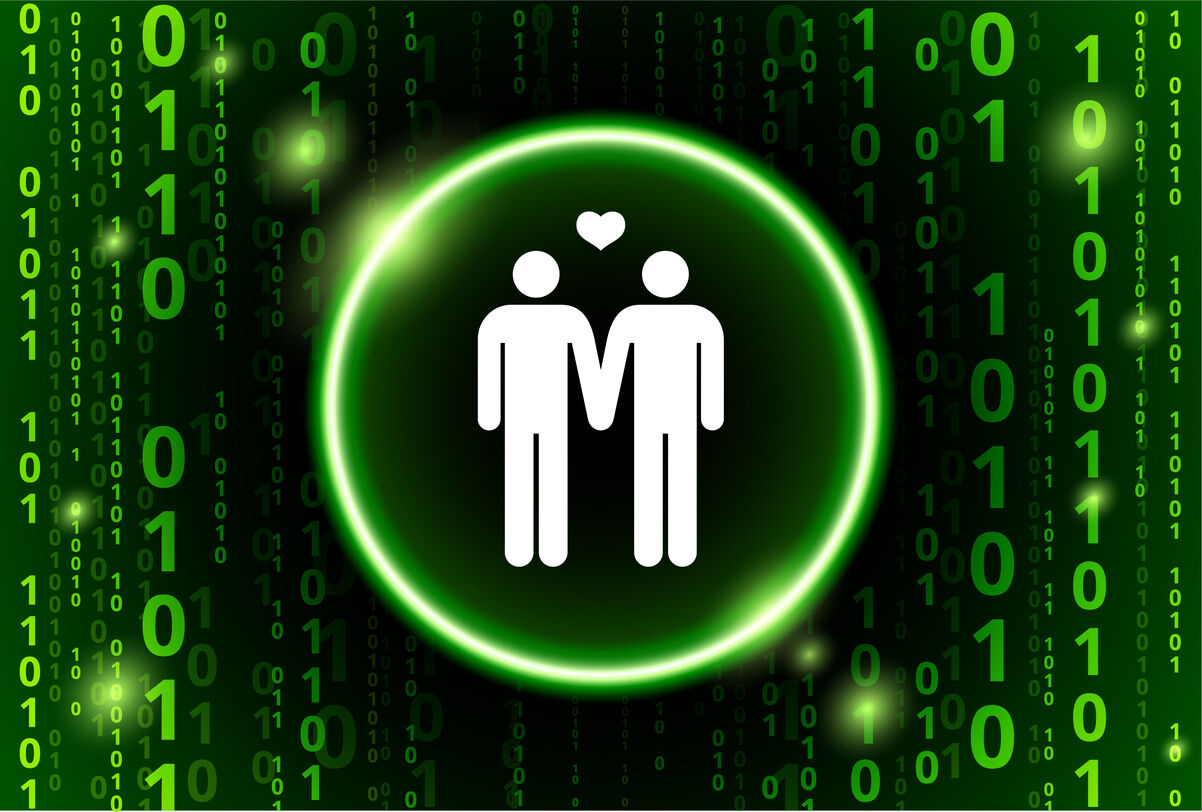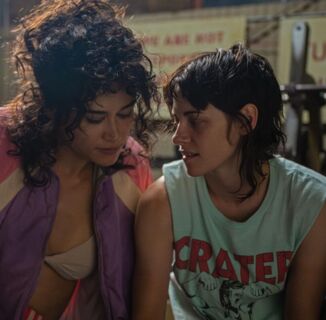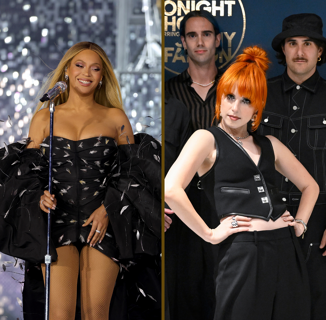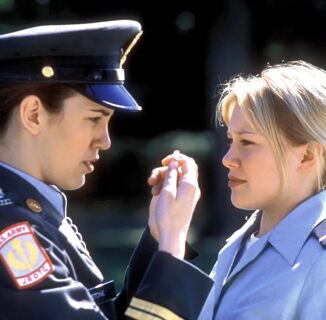When I read The Hitchhiker’s Guide to the Galaxy in my first year of high school, I was blown away by the way in which Douglas Adams begins his series by demolishing the entirety of planet Earth. Arthur Dent, the story’s protagonist, is helplessly mediocre, and he’s only able to explore the wildly beautiful secrets of the universe when humanity is destroyed.
I raced through the first few books in the series because, despite the variety of misfortunes that befall the characters, there is a constant and frantic hope running through the story. Because hope cannot be found within the normalcy of humanity, the story’s hopes must rely on that which exists just outside normalcy. Arthur longs for his status quo lifestyle, but he soon finds that hope for the future can more readily be found in that which is not considered normal.
As a semi-closeted high school kid, finding hope outside of normalcy was not easy. Sci-fi pushed me to understand hope as something that can function outside of norms; it showed me that this type of hopequeer hopecan be some of the most powerful hope.
Queerness is a category that defines itself, paradoxically enough, by defying definition. It is a term both exclusive and infinitely inclusive, and the tension between these is exactly what makes queerness so beautiful.
Genre, too, is nearly impossible to define. We label our stories in an attempt to better understand them as they relate to others, but our labels are far from perfect. The specifics of what separates magical realism from fantasy or sci-fi depends upon who you ask.
I’ve always been an avid readeras a child, I would carry a novel with me wherever I went. I couldn’t begin to count the number of times I’ve been asked to remove my books from the dinner table. I was always drawn to stories that existed in other worlds. I was (and still am) amazed at the ability of these stories to evoke very real emotions while revolving around unreality. Many describe science fiction and fantasy as escapes from the real world, but to me these stories never felt like an escapeI wasn’t leaving this world so much as welcoming other worlds into my own, spooning heaping ladlefuls of wondrous otherness into my mostly mundane lifestyle.
For most of my life as a reader, I did not question why I felt this urge to make sci-fi part of my daily life. When asked, I would offer excuses: the stories were more interesting, I would say; realistic fiction is boring.
The same can be said about my love of queer culture. While I have openly enjoyed living as a gay man for many years, I did not attempt to understand why this was so. I did not turn my critical eye toward myself, often outright avoiding doing so. As I’d learned all too well in my English courses, picking something apart can often ruin one’s enjoyment.
My love of science fiction and my love of queerness can be traced back to similar roots and pathways. And, moreover, examining the reasons for my fondness of these things has allowed me to better understand queerness and how it relates to my life as a gay man.
As far as genres go, science fiction is one of the most difficult to pin down. Sci-fi lovers might enjoy Star Wars but absolutely abhor Dune or 1984. Sci-fi encompasses unimaginable breadth and is constantly up for debate by the literary world.
By the very fact of its existence, sci-fi completes its work outside any boxes we try to put it in. The only real boundaries of science fiction are our imaginationsand, even if we can only imagine a finite number of things at any given time, we can do so ad infinitum. Sci-fi is by definition infinite.
I struggled with fitting queerness into my life for a long time. Like many, I wanted to be “normal.” I hoped to fit in and made concerted efforts to do so. Even once I’d accepted my identity as a gay man, I longed for that identity to be homogenous. I kept a distance from queer cultural events. I feared the largeness and the openness of queerness. I heard similar sentiments from my gay peers, and so I became complacent.
During this time, I continued to consume lots of sci-fi and fantasy. I raced through The Dark Tower series and cried at its conclusion. I watched Buffy the Vampire Slayer and it made me feel hope in ways I had never felt before. I wrote fevered essays on the beauty of The X-Files. If my gay identity had become complacent, my tastes in fiction had become anything butI searched out the weird, the offbeat, the extremely speculative. I dreamed of robots and magic and apocalypses.
I didn’t think I could incorporate queerness into my life, but what I didn’t understand was that I had already been doing so for a very long time. I had been doing so since I first started checking novels out of my elementary school library.
By reading these stories, I welcomed into my life many types of hope that did not conform to norms. I allowed myself to find enjoyment in stories that made their existence out of jostling the bounds of reality as we know it.
I carried these fictions with me in my daily life, the emotional baggage of hundreds of unreal universes piling up in my heart, and their otherworldliness changed me. Even as I consciously pushed away the otherness of queer life, I welcomed the otherness of sci-fi into my life.
And the hope provided by these stories was an inherently queer hope, whether or not I thought of it as such at the time. Queerness consistently interrogates at the edges of what we know to be normal, and, in the process, it attempts to make room for better tomorrows. Queerness takes what is commonly accepted and picks at its fringes. It unwinds the threads of normalcy and complacency and it uses those strings to weave something new, something better, something ever-expanding and wondrous and incredibly powerful.
Now, I know that reading sci-fi continuously helps me understand how queerness fits into my life. And I relish in it.
Reading sci-fi is a celebration of the potentialities of the future. It’s about being different and learning from this difference to create something better than what has come before.
Not all sci-fi has a happy endingbut that’s negligible, as long as it keeps dreaming.
Help make sure LGBTQ+ stories are being told...
We can't rely on mainstream media to tell our stories. That's why we don't lock our articles behind a paywall. Will you support our mission with a contribution today?
Cancel anytime · Proudly LGBTQ+ owned and operated
Read More in Culture
The Latest on INTO
Subscribe to get a twice-weekly dose of queer news, updates, and insights from the INTO team.
in Your Inbox














